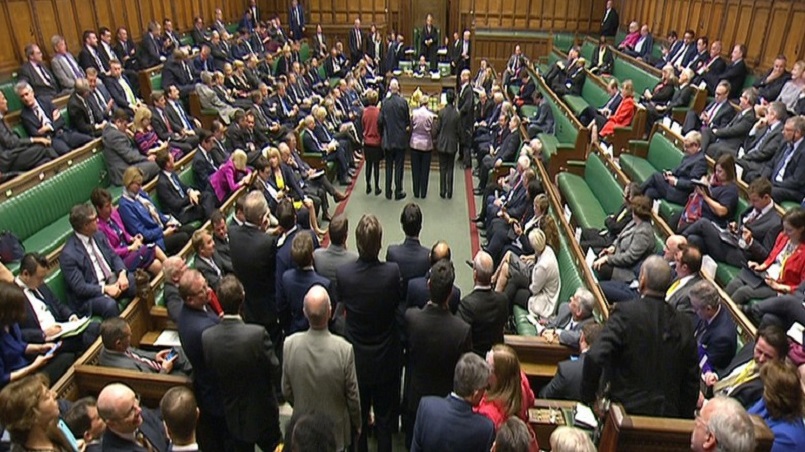
Members of the British Parliament have approved Prime Minister Theresa May's plan to hold an early general election on June 8.
May made a unexpected announcement Tuesday that she would seek a "snap" election less than halfway through her government's five-year term, with the aim of gaining a stronger mandate for the country's historic withdrawal from the European Union.
After debating the motion put forward by May in Parliament, 522 of the 650 sitting MPs voted in favor of the June 8 election, well and truly passing the threshold of two-thirds needed to approve the plan.
Thirteen voted against the motion.
The announcement marked a U-turn for May, who had repeatedly said she would not seek an early vote.
The snap vote is the latest twist in a turbulent year in British politics, which was plunged into turmoil when the country unexpectedly voted to leave the European Union last year. The hotly contested "Brexit" referendum ended with the resignation of then-Prime Minister David Cameron.
May's Conservative Party holds a slim majority in Parliament's lower House of Commons and May is banking on gaining a greater share of the seats to make Brexit a smoother transition for her government. Her plan comes as the main opposition Labour Party faces record lows in approval ratings.
But her decision also opens the door to more uncertainty in the region, as it now puts Europe's three most powerful nations -- Britain, Germany and France -- into full-throttle election mode.
An early vote will also delay Brexit talks. Both May and the European Commission have said that negotiations will only start in earnest after the poll.
That delay mounts more pressure on negotiating parties, as the clock on the two-year deadline for negotiations began ticking on March 29, when May officially filed divorce papers to Brussels.
Clear way for May
Opposition parties had said they would not block the move and have already begun soliciting support from the public, kicking of a swift seven weeks of campaigning.
The leader of the main opposition Labour Party, Jeremy Corbyn, pressed May in Parliament Wednesday to take part in a televised debate ahead of the election, but May maintained she had no interest in doing so.
During the weekly session of Prime Minister's Questions in the House of Commons, May accused opposition MPs of trying to thwart the Brexit process.
"What the British people -- what the people of the United Kingdom -- voted for last year was for the UK to leave the European Union. We have set that process in motion, there is no turning back.
"But it is clear from the statements that have been made by the Scottish nationalists and others that they do want to use this House to try to frustrate that process. I will be asking for the British people for a mandate to complete Brexit and make a success of it."
Britain is now gearing up for its third general election in seven years, which comes less than a year after the divisive referendum that decided the UK would withdraw from the EU.
May's call comes despite a law passed in 2011 under Cameron's coalition government aimed at keeping elections five years apart to prevent precisely this kind of uncertainty.
Parliament is expected to be dissolved on May 3, as British law mandates the dissolution must happen 25 working days before a general election. The House could also chose to suspend Parliament before then.
